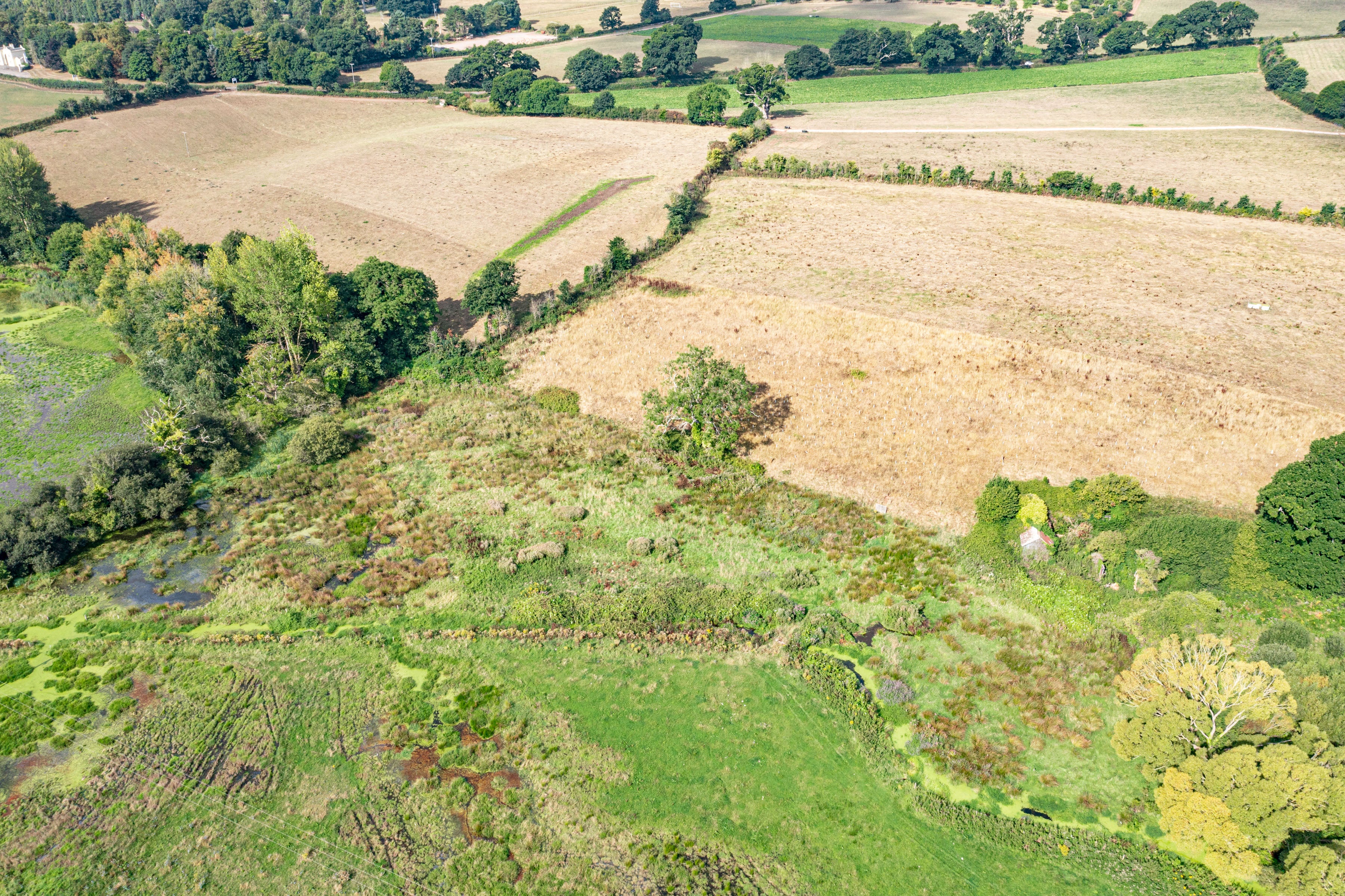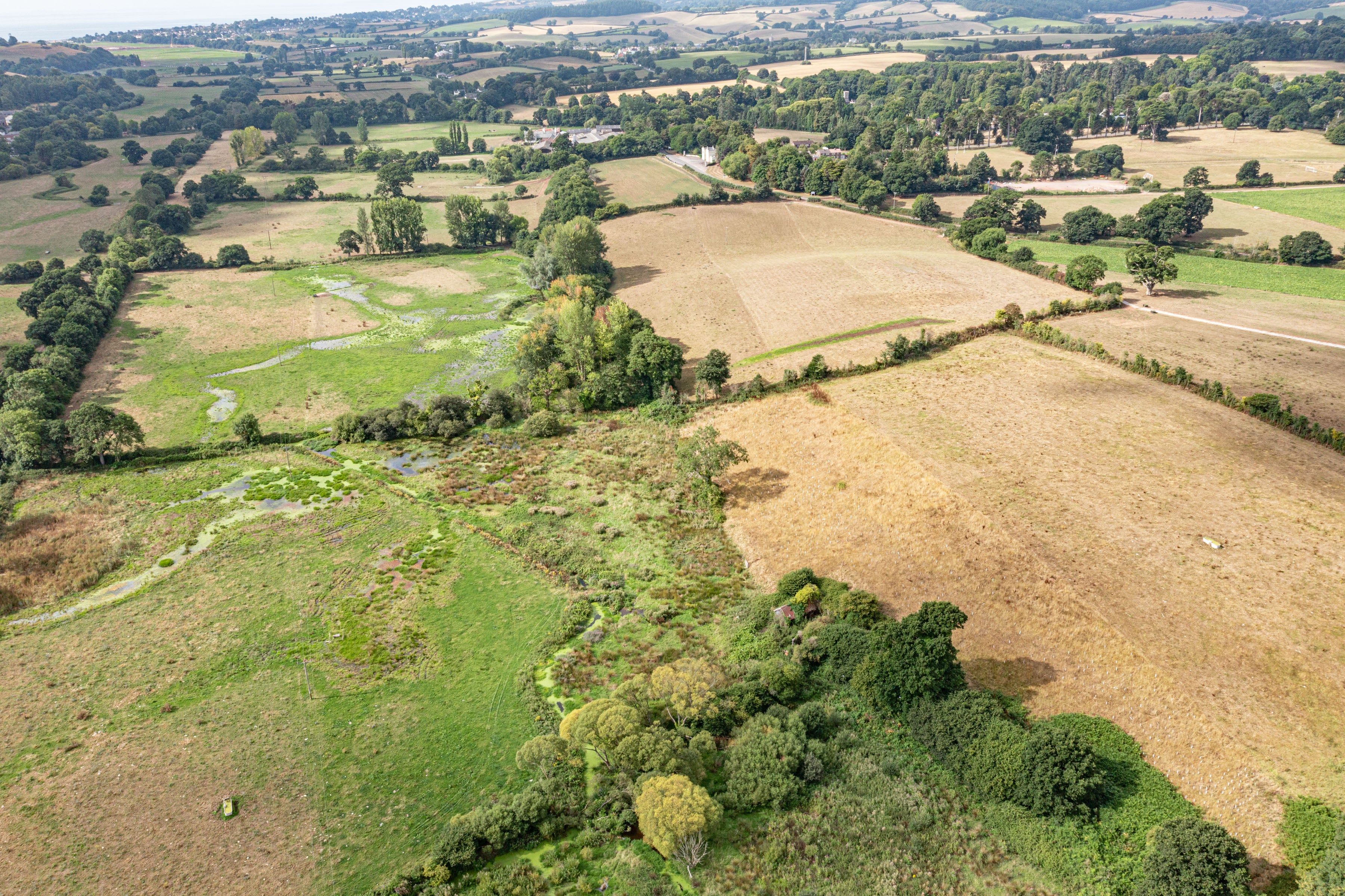Drone photos show ‘incredible’ impact of beavers during drought
Beavers’ waterscapes reduce flood impacts during wet periods and boost water retention during hot dry weather
Your support helps us to tell the story
From reproductive rights to climate change to Big Tech, The Independent is on the ground when the story is developing. Whether it's investigating the financials of Elon Musk's pro-Trump PAC or producing our latest documentary, 'The A Word', which shines a light on the American women fighting for reproductive rights, we know how important it is to parse out the facts from the messaging.
At such a critical moment in US history, we need reporters on the ground. Your donation allows us to keep sending journalists to speak to both sides of the story.
The Independent is trusted by Americans across the entire political spectrum. And unlike many other quality news outlets, we choose not to lock Americans out of our reporting and analysis with paywalls. We believe quality journalism should be available to everyone, paid for by those who can afford it.
Your support makes all the difference.A series of remarkable drone shots have revealed how the reintroduction of beavers in Devon has had a hugely beneficial impact on the landscape during the current drought.
Over 400 years after beavers were hunted to extinction in the UK, the animals were returned to the river Otter in Devon in 2008, and after initial plans for them to be removed, the government consented to a five-year study which highlighted the astonishing improvements to the ecosystem that beavers bring.
Amid the drought and one of the hottest summers on record, some of those benefits are now highly visible, with the land where the beavers are living remaining a lush green, while adjacent land has turned a parched yellow.
The tinder-dry conditions have led to record numbers of wildfires in the UK, but on the Clinton Devon Estates, where a number of beaver families have built dams to create new wetlands, roughly an entire hectare of land remains underwater. Clinton Devon Estates is a land management and property development company which manages the Devonshire estates belonging to Baron Clinton, the largest private landowner in Devon.
“It’s quite incredible to see this area when the conditions have been so challenging in recent weeks," said Ed Lagdon, a ranger for conservation organisation East Devon Pebblebed Heaths.
"Beavers are very territorial and as the Lower Otter is near full capacity, beaver families will explore nearby tributaries and culverts to find small areas of wetland to settle. They feel safe in water so will seek a water source and that’s likely to be why this family chose this particular area.
“It’s when they come away from the river in this way that they can have more of an impact on their surroundings – they will change the environment around them and manipulate the conditions to suit them. In this location, the beavers have used sticks and mud to create several dams which are now holding back large volumes of water.”

He added: “The water is up to two feet in some areas and is fantastic for wildlife such as birds and invertebrates. It also brings flood prevention benefits and carbon capture within the wetland.”
But alongside the many ecological benefits they bring, the land managers said the images also highlight the new challenges beavers can create for people unused to co-existing with the indigenous mammal.

Clinton Devon Estates’ head of agriculture, Sam Briant-Evans, explained: “It’s been quite surprising to see how quickly they’ve worked, it’s taken less than six months. We’ve lost about two hectares of the field as a grazing platform for our dairy herd – one hectare of this is now permanently underwater. It was May this year before we were able to get the cattle onto it.
“The concern we have is if we move them on, they may move upstream again which could cause issues if they are closer to the main farm. It’s a bit of a conundrum for us as an estate as we can see both sides of the equation. We need to accept that the beavers are there but they need to be closely monitored and managed going forward, so their activities and any potential flood issues can be monitored and we can tackle it quickly.
“There’s no clear solution. However, what this does highlight is that with the right management and by working with them, they can help in the adaptation to climate change.”

New government legislation comes into force on 1 October which will afford beavers legal protection as a recognised native species in England, meaning it will be illegal to disturb, harm or kill them.
John Varley, Clinton Devon Estates director, said: “In the right place, beavers can bring about major benefits for wildlife, the environment and society, including increased biodiversity, which is a key aim of the government’s Nature Recovery Network.
“Clinton Devon Estates supported the River Otter Beaver Trial from the beginning because we wanted to understand the full impact of beavers in a real-world setting. During the project, we learnt a great deal about these benefits, such as cleaner water, natural flood management and habitat creation.
“However, we have also witnessed negative impacts when beavers are in the wrong place: farmers’ fields, private property and roads flooded, as well as trees damaged.
“As the beaver population on the River Otter grew and expanded, so did the need for proactive management, and all the costs associated with that. We believe that if properly funded by government, the cost of managing beavers is far outweighed by the social and economic benefits to nature and the public.”





Join our commenting forum
Join thought-provoking conversations, follow other Independent readers and see their replies
Comments